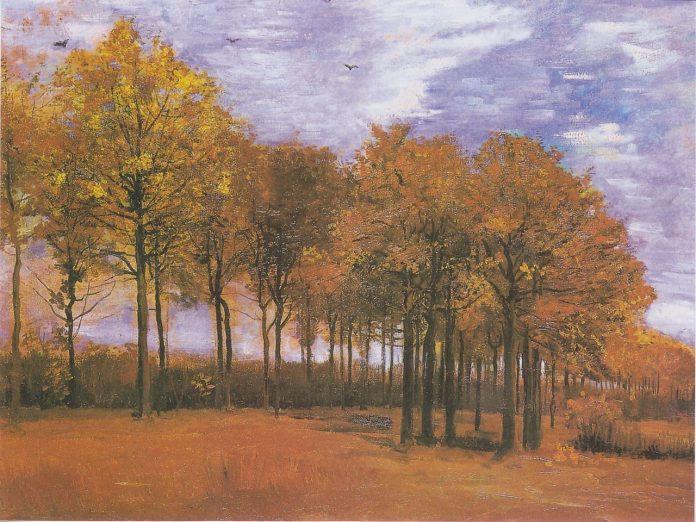“Niels Lyhne” by Jens Peter Jacobsen: An Exploration of Existential Doubt and Modern Realism
Introduction
“Niels Lyhne” by Jens Peter Jacobsen is a seminal work in Danish literature, embodying the existential struggles and philosophical inquiries of the late 19th century. The novel, published in 1880, delves deep into the protagonist’s inner world, exploring themes such as atheism, unrequited love, and the quest for meaning in an apparently indifferent universe. The novel, set against the backdrop of a rapidly changing society, reflects the intellectual and cultural currents of its time, including the rise of scientific rationalism and the decline of religious certainty. Jacobsen’s masterful narrative and lyrical prose make “Niels Lyhne” a profound exploration of human existence, positioning it as a precursor to modern existentialist thought. The novel’s introspective approach and psychological depth resonate with the reader, offering a poignant depiction of the human condition. Jacobsen’s detailed characterisations and evocative descriptions create an immersive experience, drawing readers into the protagonist’s existential dilemmas and emotional struggles. Through Niels’s journey, Jacobsen examines the universal search for identity, purpose, and authenticity, making “Niels Lyhne” not only a cornerstone of Danish literature but also a timeless work of philosophical inquiry and artistic expression.
Plot Overview of “Niels Lyhne” by Jens Peter Jacobsen
The novel follows the life of Niels Lyhne, an introspective and idealistic young man grappling with the complexities of faith, love, and identity. From his childhood in the idyllic Danish countryside to his adult years filled with artistic aspirations and personal disappointments, Niels’s journey is marked by a continual quest for authenticity and self-understanding. Niels’s early experiences are shaped by his mother’s devout religiosity and his budding atheism. His yearning for love leads to a series of unfulfilled romantic entanglements, each leaving him more disillusioned. His friendship with the poet Edele Lyhne and the tragic death of his close friend Erik contributes to his growing sense of isolation and existential despair. Throughout his life, Niels is repeatedly confronted with the fragility of human existence. Whether through personal loss, romantic failure, or the disintegration of his ideals, he faces a constant struggle to reconcile his dreams with the harsh realities of life. This struggle is intensified by his intellectual pursuits and his desire to find a coherent worldview that aligns with his atheistic beliefs.
Themes and Motifs in “Niels Lyhne” by Jens Peter Jacobsen
Jacobsen’s “Niels Lyhne” is a profound exploration of existential doubt. Niels’s atheism and rejection of traditional religious beliefs force him to confront the emptiness and uncertainty of life without a higher power. This struggle is poignantly depicted through his introspective musings and the novel’s melancholic tone. Unrequited love is a central theme in “Niels Lyhne”. Niels’s romantic pursuits, including his infatuation with the initially unattainable Gerda and his deep connection with Edele, highlight the pain and frustration of unfulfilled desires. Despite marrying Gerda, the novel explores how idealised love often falls short of expectations, revealing the complexities and disillusionments inherent in human relationships. These experiences underscore the novel’s exploration of the elusive nature of happiness and the inevitability of loss. The motif of artistic aspiration runs throughout the book. Niels’s dreams of becoming a writer reflect his search for meaning and purpose. However, his inability to realise these ambitions mirrors his broader existential struggles, emphasising the difficulty of achieving personal fulfilment in an indifferent world. Another significant motif in “Niels Lyhne” is the passage of time and the inevitability of change. The novel frequently reflects on the transient nature of life, as Niels witnesses the gradual fading of his youth, the erosion of his ideals, and the shifting dynamics of his relationships. This awareness of time’s relentless progression adds a layer of poignancy to Niels’s journey, underscoring the fleeting nature of human existence.
Literary Significance of “Niels Lyhne” by Jens Peter Jacobsen
“Niels Lyhne” is notable for its modern realism and psychological depth. Jacobsen’s detailed characterisations and evocative descriptions create a vivid and immersive narrative. His use of free indirect discourse allows readers to intimately experience Niels’s thoughts and emotions, enhancing the novel’s introspective quality. The novel’s existential themes and philosophical inquiries align it with later existentialist works by writers such as Søren Kierkegaard, Friedrich Nietzsche, and Jean-Paul Sartre. Jacobsen’s exploration of atheism, the search for meaning, and the complexities of human emotion anticipates many of the concerns that would define 20th-century existentialist literature. Jacobsen’s writing style is also significant for its poetic quality and attention to nature. His lyrical descriptions of the Danish landscape not only provide a rich backdrop for the story but also serve as a metaphor for Niels’s internal states. The natural world in “Niels Lyhne” often mirrors the protagonist’s emotions, creating a harmonious interplay between the external and internal realms.
Critical Reception and Legacy
Upon its release, “Niels Lyhne” received mixed reviews. While some critics appreciated its philosophical depth and lyrical prose, others found its existential themes challenging and its melancholic tone off-putting. However, over time, the novel has gained recognition as a classic of Danish literature and an essential precursor to modern existentialist thought. Renowned authors such as Rainer Maria Rilke and Thomas Mann have praised “Niels Lyhne” for its profound exploration of human existence. Rilke, in particular, was deeply influenced by Jacobsen’s work, finding inspiration in its introspective and philosophical approach. The novel’s impact on later literature is evident in its exploration of themes that continue to resonate with readers today, such as the search for meaning, the struggle with faith, and the complexities of human emotion.
Conclusion
Jens Peter Jacobsen’s “Niels Lyhne” is a masterful exploration of the human condition, providing profound insights into the struggles of faith, love, and identity. Its existential themes and psychological realism make it a timeless work, resonating with readers who seek to understand the complexities of human existence. As a precursor to modern existentialist thought, “Niels Lyhne” continues to captivate and inspire, affirming its place as a classic of Danish literature. Jacobsen’s ability to weave together lyrical prose, philosophical inquiry, and rich characterisations results in a novel that is intellectually stimulating and emotionally resonant. “Niels Lyhne” stands as a testament to the enduring power of literature to explore and illuminate the most profound questions of human life.





